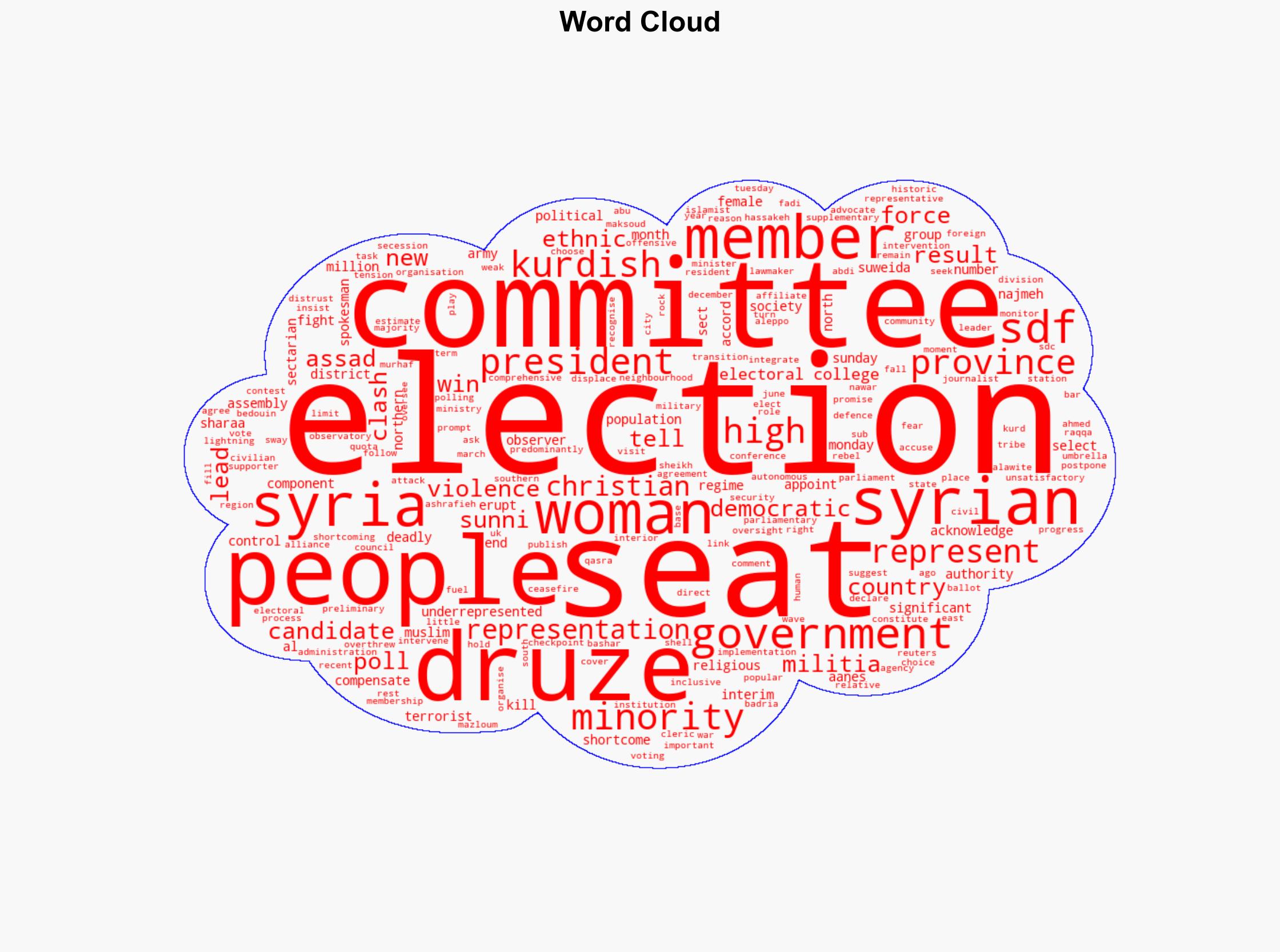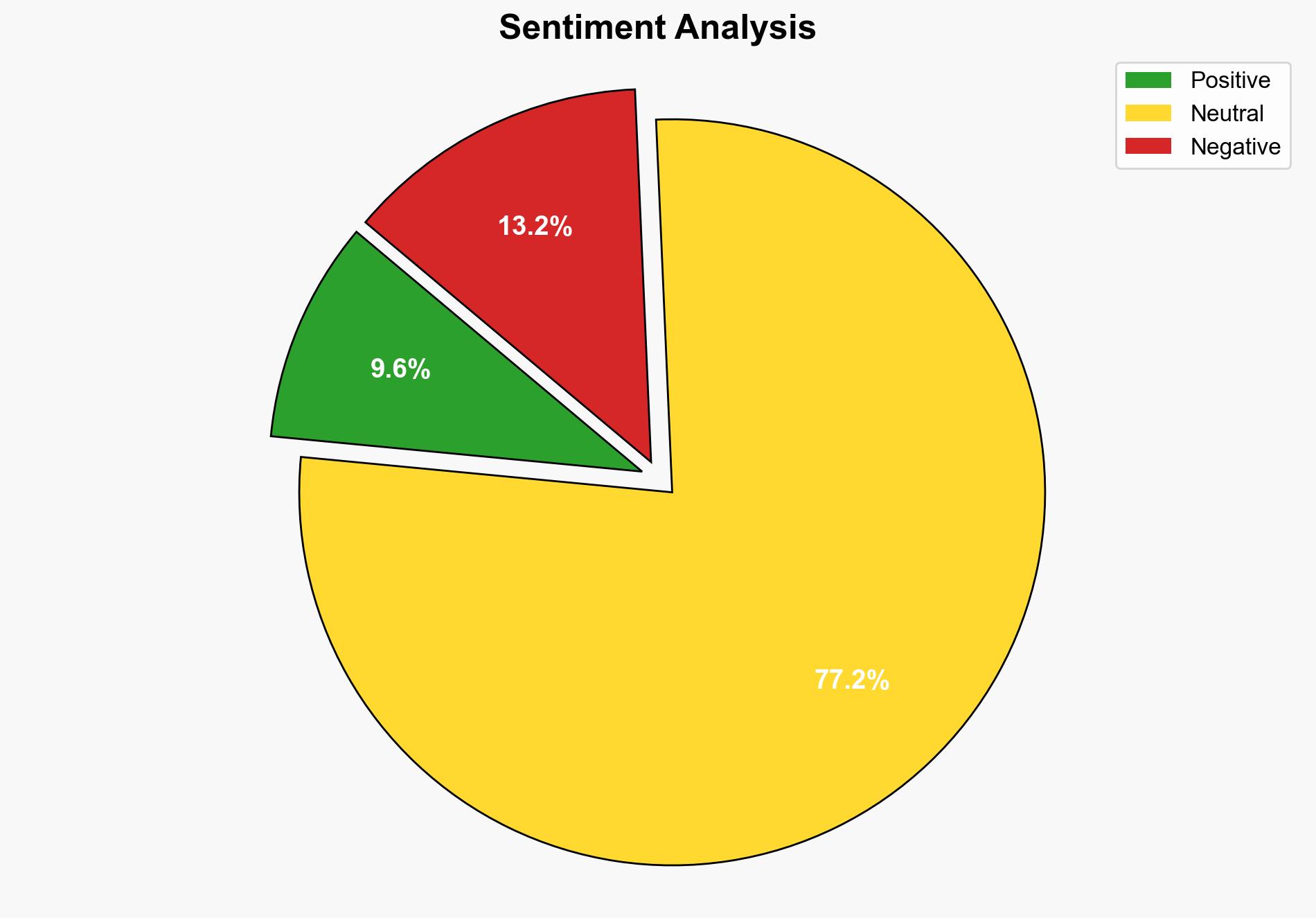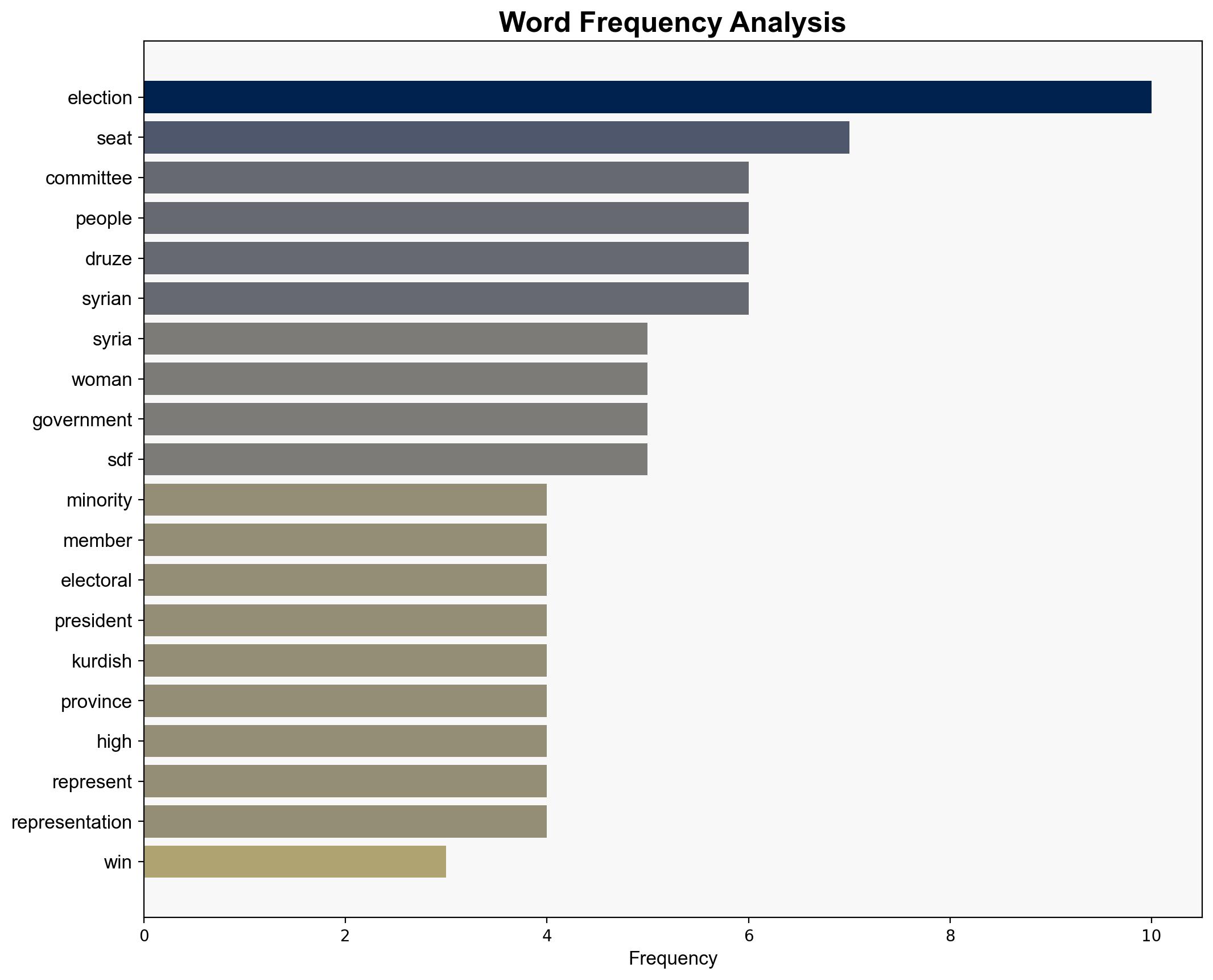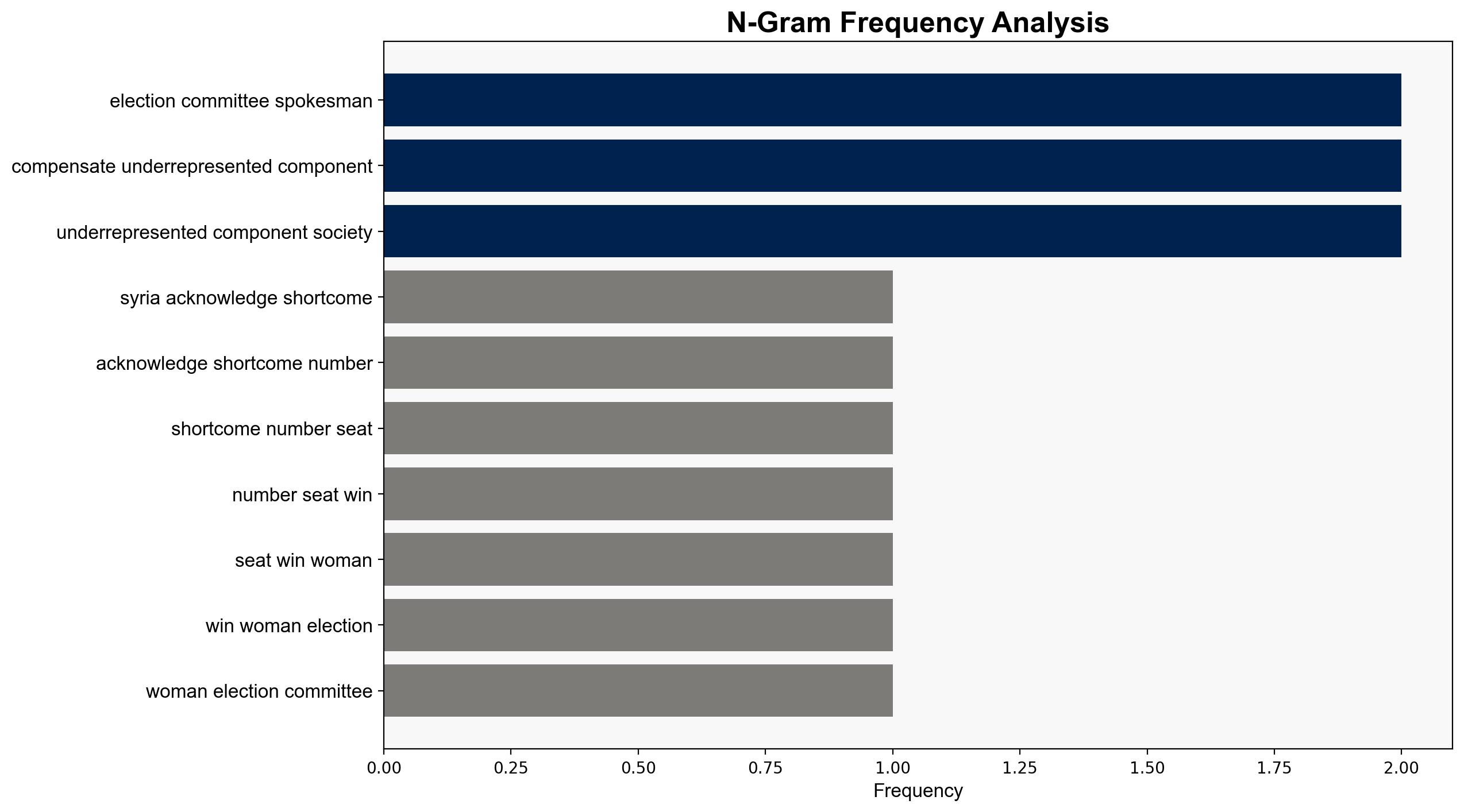Syria acknowledges ‘shortcomings’ in number of seats won by women at election – BBC News
Published on: 2025-10-07
Intelligence Report: Syria acknowledges ‘shortcomings’ in number of seats won by women at election – BBC News
1. BLUF (Bottom Line Up Front)
The Syrian government’s acknowledgment of electoral shortcomings, particularly regarding women’s representation, may indicate either a genuine attempt to address democratic deficits or a strategic maneuver to placate international observers and domestic dissent. The hypothesis that this is a strategic maneuver is better supported by the evidence. Confidence level: Moderate. Recommended action: Monitor developments for signs of genuine reform versus superficial changes.
2. Competing Hypotheses
1. **Genuine Reform Hypothesis**: The Syrian government is sincerely attempting to address democratic deficits, including women’s representation, as part of a broader political transition.
2. **Strategic Maneuver Hypothesis**: The acknowledgment of shortcomings is a strategic move to placate international observers and domestic dissent without implementing substantial reforms.
Using ACH 2.0, the Strategic Maneuver Hypothesis is better supported. Evidence includes the historical context of limited reforms and the strategic use of appointments to compensate for electoral shortcomings.
3. Key Assumptions and Red Flags
– **Assumptions**: The government has the capacity and willingness to implement genuine reforms. The acknowledgment of shortcomings is a precursor to meaningful change.
– **Red Flags**: The reliance on appointments to address representation issues may indicate a lack of genuine commitment to reform. The postponement of polls in certain regions raises questions about the inclusivity and fairness of the process.
– **Blind Spots**: Limited information on the internal decision-making processes and potential external pressures influencing the government’s actions.
4. Implications and Strategic Risks
– **Political Implications**: Continued dissatisfaction with the electoral process could fuel domestic unrest and undermine the government’s legitimacy.
– **Geopolitical Risks**: International scrutiny may increase, potentially leading to diplomatic pressure or sanctions if reforms are deemed superficial.
– **Security Risks**: Tensions in regions with postponed polls could escalate, particularly if perceived as marginalization of minority groups.
5. Recommendations and Outlook
- Monitor government actions for signs of genuine reform versus superficial changes.
- Engage with regional and international partners to assess the impact of electoral developments on regional stability.
- Scenario Projections:
- Best Case: Genuine reforms lead to increased stability and international support.
- Worst Case: Superficial changes exacerbate domestic unrest and international isolation.
- Most Likely: Limited reforms with strategic appointments maintain status quo, with ongoing international scrutiny.
6. Key Individuals and Entities
– Bashar al-Assad
– Ahmed al-Sharaa
– Nawar Najmeh
– Mazloum Abdi
7. Thematic Tags
national security threats, electoral reform, regional stability, international diplomacy





